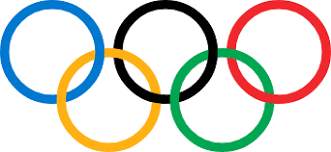Do You Know How the Olympic Games Began
The Olympic Games are the world’s biggest sporting event, but do you know where and how they began? From ancient Greece to today’s global stage, discover the fascinating story of the Olympics.
ENTERTAINMENT & SPORTS
Do You Know Team
7/22/20254 min read


Every four years, the world gathers to celebrate the Olympic Games—a grand event of unity, athleticism, and global pride. Billions of people watch as athletes from around the globe compete for gold, silver, and bronze medals. But few realize that the Olympics are over 2,700 years old. The story of the Olympic Games is not just about sports—it’s about religion, culture, politics, and human ambition. The Games began in ancient Greece as a way to honor their gods, particularly Zeus, and slowly evolved into the modern international spectacle we know today.
This article will take you through the journey of how the Olympic Games began, their transformation over centuries, and why they remain so significant to humanity.
1. The Origins in Ancient Greece
The first recorded Olympic Games were held in 776 BCE in Olympia, a sacred site in Greece dedicated to Zeus. These games were not merely athletic contests—they were religious festivals.
Athletes competed to honor the gods.
The Games were held every four years, a period known as an Olympiad.
Only free Greek men were allowed to participate—women and non-Greeks were excluded.
The games became a unifying tradition in Greece, even during times of war.
2. Religious Importance
The Olympics were deeply tied to Greek mythology.
Olympia housed the massive Temple of Zeus, one of the Seven Wonders of the Ancient World.
Before competitions, athletes would sacrifice animals and pray for victory.
Victors were crowned with an olive wreath, symbolizing divine blessing.
Thus, the Olympics were as much about spirituality as about sport.
3. The Events of the Ancient Olympics
The early Olympics featured fewer events compared to today. Some of the main contests were:
Stadion Race – a short sprint (about 200 meters).
Wrestling – tests of strength and technique.
Chariot Racing – dramatic contests that often decided political prestige.
Pentathlon – a mix of running, jumping, discus, javelin, and wrestling.
Pankration – a brutal mix of boxing and wrestling, often compared to modern MMA.
These events showcased physical strength, endurance, and skill, reflecting the Greek admiration for the human body.
4. The Spirit of Competition
The Olympics were not about money or fame—they were about honor.
Winners did not receive cash prizes.
Instead, they were immortalized as heroes in their city-states.
Poets and artists celebrated their victories in songs, statues, and stories.
This spirit made the Games a symbol of human excellence.
5. The Olympic Truce
One of the most remarkable traditions was the Olympic Truce (Ekecheiria).
During the Games, all wars in Greece stopped.
Enemies could travel safely to Olympia without fear of attack.
The Games were seen as a time of peace and unity.
This tradition continues symbolically in the modern Olympics as a message of world peace.
6. The Decline of the Ancient Olympics
The Games lasted for nearly 12 centuries, but they eventually declined.
In 393 CE, Roman Emperor Theodosius I banned the Games as part of a crackdown on pagan festivals.
Olympia fell into ruins, and the Games were forgotten for over 1,500 years.
The Olympic flame seemed extinguished forever.
7. The Revival in Modern Times
In the late 19th century, French educator Pierre de Coubertin dreamed of reviving the Olympics.
He believed sports could promote peace and international friendship.
In 1896, the first modern Olympics were held in Athens, Greece, symbolically linking the new games with their ancient roots.
13 countries participated in 43 events, marking the rebirth of a tradition.
From then on, the Olympic Games grew into a global phenomenon.
8. The Olympic Symbols
The modern Games introduced powerful symbols of unity:
The Olympic Rings – five interlinked rings representing the continents.
The Olympic Flame – lit in Olympia and carried to the host city by a torch relay.
The Motto – “Citius, Altius, Fortius” (Faster, Higher, Stronger).
These symbols remind the world of shared values, harmony, and human achievement.
9. Olympics Today
The Olympics have expanded into the largest sporting event in history.
Summer Olympics feature sports like athletics, swimming, and gymnastics.
Winter Olympics highlight skiing, ice skating, and snowboarding.
Both events attract over 200 nations.
From ancient rituals to modern celebrations, the Olympics continue to inspire billions.
10. The Legacy of the Olympic Games
The Games are more than just sports—they carry powerful messages:
Promoting peace and unity across nations.
Inspiring young athletes to dream big.
Celebrating diversity and cultural exchange.
Honoring the spirit of competition and excellence.
The Olympic Games remain a living bridge between ancient history and modern humanity.
FAQs
Q1: When were the first Olympic Games held?
A: The first recorded Games took place in 776 BCE in Olympia, Greece.
Q2: Why were the Olympics important in ancient Greece?
A: They honored Zeus, promoted unity among city-states, and celebrated human strength and skill.
Q3: Who revived the Olympics in modern times?
A: French educator Pierre de Coubertin revived them in 1896 in Athens.
Q4: What is the Olympic Truce?
A: An ancient agreement where wars stopped during the Games, allowing athletes to travel safely.
Q5: Why do we light the Olympic torch today?
A: It symbolizes the link between ancient Olympia and the modern Games.
Conclusion
The Olympic Games began as a religious festival in ancient Greece but have transformed into the largest sporting event in the world. They embody values of peace, unity, and human achievement. From sacred rituals in Olympia to dazzling ceremonies in modern stadiums, the Olympics tell a story of how humanity celebrates strength, competition, and togetherness. The Olympic Games are not just sports—they are a timeless tradition, a bridge across centuries, and a reminder of what humanity can achieve when it comes together.
#DoYouKnow #OlympicsHistory #AncientGreece #SportsAndCulture #OlympicGames
Knowledge
Empowering minds with reliable educational content daily.
Newsletter Signup
© 2025 DoYouKnow. All rights reserved.
Stay Ahead of the Trends – Join Our Newsletter
